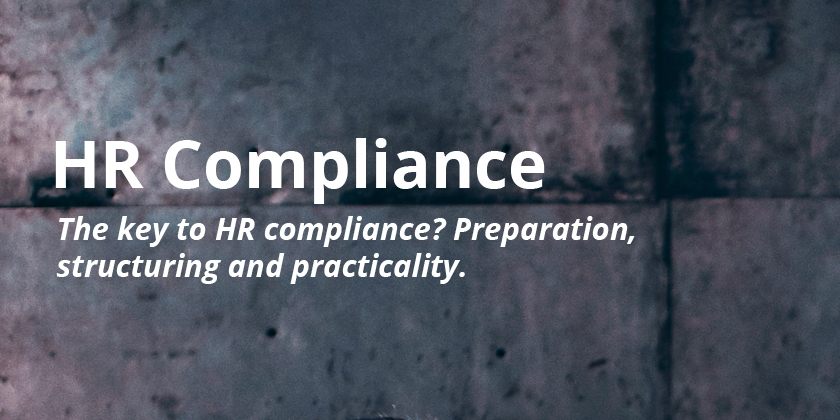For English translation please switch on subtitles.
Case Study | A Christmas surprise
With works council elections due in the coming year, the works council wanted to put all external skilled workers up as candidates. That was the situation facing our client in the run-up to Christmas, just before the election lists were drawn up.
We soon agreed that the works council’s announcement raised an issue that was not only potentially explosive within the enterprise, but also involved huge liability risks. The right strategy was needed – and fast. The more so because the works council didn’t merely want to exert pressure on the employer side, it believed that the employment status of external workers had been incorrectly assessed in many cases.
We recommended that the client adopt a three-stage strategy. After detailed discussions with the works council about how they had conducted their analysis, we got straight down to work. The first step was to take stock of the situation, warts and all.
This included interviewing a large number of company employees in person, as well as external staff, thereby allowing us to determine the actual circumstances under which external skilled workers were deployed. We then assessed these circumstances individually from a legal perspective and incorporated them into a comprehensive risk structure, which was also broken down by activity. In addition to recommendations for ad hoc action to deal with issues identified as critical, we summarised the reasons for the failings.
We then moved on to dealing with the critical cases. Thanks to careful preparation and an effective communication strategy developed together with the client, it was possible to resolve all but a very few cases quickly and amicably with the relevant contractual partners and external workers.
This enabled us to concentrate on negotiations with the German pension insurance service and the tax authorities relating to possible cases of disguised employment. Here again, we quickly reached a blanket agreement to resolve the past issues.
Back to the future
Our aim was not only to deal with the immediate risk, but also to establish a compliant way of using external staff in the future. To do this, we worked with our client to develop and implement the robust structures and processes needed to create a sustainable governance structure. In addition to adapting existing organisational structures, this also included optimised or new framework conditions and policies that built on the results of our internal investigation. This involved amending existing contract templates and the previous contract management and purchasing structures, developing model service descriptions together with the individual departments, and defining solutions for agile work practices when using external specialists. It was extremely important to us not just to establish abstract principles, but to draw up precise, practical and specific recommendations for day-to-day interaction with external skilled workers.
Legal tech as part of efficient analysis and as a compliance organisation tool
Due to the significant time pressure, we used our own software solution, CMS FPE, for initial assessment as part of our risk analysis of the status quo. This resource-efficient approach allowed us to gain a very quick first insight into the risk situation within the enterprise in relation to possible disguised employment and illegal temporary employment.
As CMS FPE is capable of both technical and procedural integration into corporate purchasing and ordering processes, we included our tool in the proposal for a future compliance regime. This ensures that the correct decisions are taken right at the beginning of the ordering process, thereby minimising the risk of disguised employment and illegal temporary employment.
CMS FPE (use of external personnel)
Tool for quick and easy individual assessment
Change management, beyond the purely legal
Based on our experience of many similar projects, we knew we had to push for sustainable change in order to reduce the risk of falling back into old (illegal) patterns of behaviour. With a view to working towards real-world compliance as part of a change management process, we designed a comprehensive training and workshop programme together with the client. This was aimed at different target groups in various formats, from the management board through senior managers to rank and file employees. The programme was rolled out across Germany and the rest of the group. It has played a major role in raising awareness and establishing robust compliance around the use of external staff. It should also save the client from similar Christmas surprises in the future.
CMS Green Trail
Modular step-by-step plan that supports ESG compliance – digital access, industry-specific assessment and individual recommendations for your ESG strategy
Whistleblowing
Transposition of EU Whistleblower Directive | Mandatory whistleblower system
Further insights, specialist publications and articles on the topic of HR Compliance can be found here.



















%20(3).jpg?v=3)





Social Media cookies collect information about you sharing information from our website via social media tools, or analytics to understand your browsing between social media tools or our Social Media campaigns and our own websites. We do this to optimise the mix of channels to provide you with our content. Details concerning the tools in use are in our privacy policy.